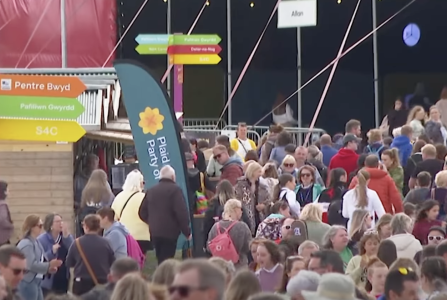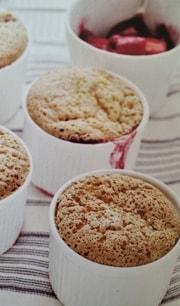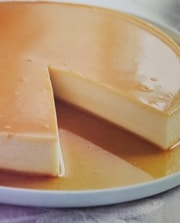The word that stayed: Australia’s unique relationship with ‘eisteddfod’
- Replies 0
If you grew up in Australia, chances are you’ve spent at least one weekend in your youth squeezed into a leotard, hair pulled back so tight it could double as a facelift, and nerves jangling as you waited backstage for your turn to shine.
And if that’s the case, there’s a word you probably tossed around without a second thought: eisteddfod.
So, what’s the story behind this tongue-twister of a term, and how did it become such a staple of Aussie childhoods? Let’s take a trip down memory lane—and across continents—to find out.
Here’s the thing—step outside Australia, and you’ll quickly discover that 'eisteddfod' is about as familiar to most people as a drop bear or a Tim Tam slam. In fact, aside from a few folks in Wales, Aussies are some of the only people in the world who use the word at all!
The word 'eisteddfod' (pronounced eye-STED-fod, for those playing along at home) has its roots deep in Welsh culture.
It comes from the Welsh words 'eistedd' (to sit) and 'bod' (to be), and literally means 'sitting together.' But don’t be fooled by the humble translation—an eisteddfod is anything but a quiet sit-down!
In Wales, the eisteddfod is a centuries-old festival celebrating poetry, music, and performance.

The tradition dates back to at least the 12th century, and the modern National Eisteddfod of Wales is a massive event, drawing thousands for competitions in singing, harp playing, poetry recitation, and more—all in the Welsh language, of course.
When Welsh immigrants made their way to Australia in the 1800s, especially to mining and wool-producing regions, they brought their beloved eisteddfodau (that’s the plural!) with them.
At first, these Aussie eisteddfods stuck closely to the Welsh model: think choirs, poetry, and a bit of instrumental music.
But, as with so many things, the Australian version soon took on a life of its own. Somewhere along the line, someone decided to add a dance routine or two to the program.
Before long, 'eisteddfod' in Australia became a catch-all term for any kind of performing arts competition—singing, drama, and especially dance.
This is what linguists call a 'semantic shift'—when a word’s meaning changes as it travels across cultures.
While the Welsh eisteddfod remains a festival of language and music, the Aussie eisteddfod is now synonymous with sequins, tap shoes, and the smell of hairspray wafting through school halls.
For generations of Australian kids (and their parents), eisteddfods have meant weekends spent dashing between costume changes, pep talks in the wings, and the thrill of performing in front of a panel of judges.
Source: BBC Newsround / Youtube.
If you’ve ever mentioned an 'eisteddfod' to an overseas friend, you’ve probably been met with blank stares. That’s because, outside of Australia and Wales, the word is virtually unknown.
Even in the UK, unless you’re talking to someone from Wales, you’re more likely to get a puzzled look than a knowing nod.
In Wales, the eisteddfod is still a revered cultural event, focused on preserving the Welsh language and celebrating traditional arts. In Australia, it’s become a beloved—if sometimes stressful—part of the school calendar, with a uniquely Aussie flavour.
Despite its transformation, the eisteddfod remains a living link between Australia and its Welsh heritage.
Did You Know? Fun Eisteddfod Facts
- The first recorded eisteddfod in Australia was held in Ballarat, Victoria, in 1855.
- Some Australian eisteddfods are massive affairs, with thousands of participants and dozens of categories.
- The tradition is still going strong, with new generations of Aussie kids donning costumes and taking to the stage every year.
Read more: ‘How dirty can you be?’: Royals stun commuters with unexpected train trip

Did you compete in an eisteddfod as a child—or perhaps you’ve cheered on a grandchild from the audience? Do you have fond (or funny!) memories of those backstage moments, costume mishaps, or last-minute rehearsals? Or maybe you only learned what an eisteddfod was later in life? We’d love to hear your stories! Share your eisteddfod memories in the comments below, and let’s celebrate this uniquely Aussie tradition together.
And if that’s the case, there’s a word you probably tossed around without a second thought: eisteddfod.
So, what’s the story behind this tongue-twister of a term, and how did it become such a staple of Aussie childhoods? Let’s take a trip down memory lane—and across continents—to find out.
Here’s the thing—step outside Australia, and you’ll quickly discover that 'eisteddfod' is about as familiar to most people as a drop bear or a Tim Tam slam. In fact, aside from a few folks in Wales, Aussies are some of the only people in the world who use the word at all!
The word 'eisteddfod' (pronounced eye-STED-fod, for those playing along at home) has its roots deep in Welsh culture.
It comes from the Welsh words 'eistedd' (to sit) and 'bod' (to be), and literally means 'sitting together.' But don’t be fooled by the humble translation—an eisteddfod is anything but a quiet sit-down!
In Wales, the eisteddfod is a centuries-old festival celebrating poetry, music, and performance.

The word 'eisteddfod', originally from Wales and meaning a festival celebrating poetry, music, and performance, was brought to Australia by Welsh immigrants in the 1800s. Image source: BBC Newsround / Youtube.
The tradition dates back to at least the 12th century, and the modern National Eisteddfod of Wales is a massive event, drawing thousands for competitions in singing, harp playing, poetry recitation, and more—all in the Welsh language, of course.
When Welsh immigrants made their way to Australia in the 1800s, especially to mining and wool-producing regions, they brought their beloved eisteddfodau (that’s the plural!) with them.
At first, these Aussie eisteddfods stuck closely to the Welsh model: think choirs, poetry, and a bit of instrumental music.
But, as with so many things, the Australian version soon took on a life of its own. Somewhere along the line, someone decided to add a dance routine or two to the program.
Before long, 'eisteddfod' in Australia became a catch-all term for any kind of performing arts competition—singing, drama, and especially dance.
This is what linguists call a 'semantic shift'—when a word’s meaning changes as it travels across cultures.
While the Welsh eisteddfod remains a festival of language and music, the Aussie eisteddfod is now synonymous with sequins, tap shoes, and the smell of hairspray wafting through school halls.
For generations of Australian kids (and their parents), eisteddfods have meant weekends spent dashing between costume changes, pep talks in the wings, and the thrill of performing in front of a panel of judges.
Source: BBC Newsround / Youtube.
If you’ve ever mentioned an 'eisteddfod' to an overseas friend, you’ve probably been met with blank stares. That’s because, outside of Australia and Wales, the word is virtually unknown.
Even in the UK, unless you’re talking to someone from Wales, you’re more likely to get a puzzled look than a knowing nod.
In Wales, the eisteddfod is still a revered cultural event, focused on preserving the Welsh language and celebrating traditional arts. In Australia, it’s become a beloved—if sometimes stressful—part of the school calendar, with a uniquely Aussie flavour.
Despite its transformation, the eisteddfod remains a living link between Australia and its Welsh heritage.
Did You Know? Fun Eisteddfod Facts
- The first recorded eisteddfod in Australia was held in Ballarat, Victoria, in 1855.
- Some Australian eisteddfods are massive affairs, with thousands of participants and dozens of categories.
- The tradition is still going strong, with new generations of Aussie kids donning costumes and taking to the stage every year.
Read more: ‘How dirty can you be?’: Royals stun commuters with unexpected train trip
Key Takeaways
- The word 'eisteddfod', originally from Wales and meaning a festival celebrating poetry, music, and performance, was brought to Australia by Welsh immigrants in the 1800s.
- In Australia, 'eisteddfod' has shifted in meaning over time to become a widely used term for all sorts of performing arts competitions, especially dance contests, rather than its original music and poetry focus.
- While most Australians use 'eisteddfod' without question, people overseas or expats often have no idea what it means, highlighting how uniquely Aussie the term has become.
- For generations of Aussie kids, eisteddfods are an iconic part of growing up, symbolising weekends filled with costumes, rehearsals, and fierce but friendly competition in the performing arts.
Did you compete in an eisteddfod as a child—or perhaps you’ve cheered on a grandchild from the audience? Do you have fond (or funny!) memories of those backstage moments, costume mishaps, or last-minute rehearsals? Or maybe you only learned what an eisteddfod was later in life? We’d love to hear your stories! Share your eisteddfod memories in the comments below, and let’s celebrate this uniquely Aussie tradition together.







